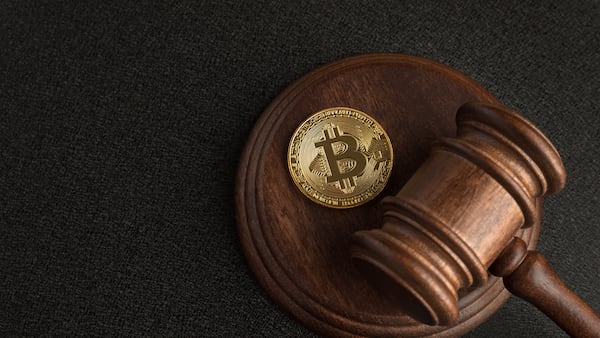- Lawmakers fear permissionless blockchains could turbocharge money laundering.
- But traditional AML policies require intermediaries — the very thing lacking in decentralised systems.
- Researchers at the Bank for International Settlements say there’s a way to combat money laundering without forcing blockchains to collect user information.
In a new paper, researchers at the Bank for International Settlements proposed a solution to a problem that has long bedeviled the crypto industry: how to enforce money laundering regulations on permissionless blockchains.
Blockchains’ key attribute — their permissionless nature — has long been their greatest weakness, according to sceptics in public policy circles.
Just like surfing the web, transacting on a blockchain is open to anyone with an internet connection, no signup required.
Blockchains promise to level the financial playing field and “bank the unbanked.” But they have also frightened lawmakers who believe the absence of regulated middlemen will turbocharge money laundering.
In a paper published Wednesday, BIS researchers proposed scoring individuals’ crypto holdings based on their transfer history. The BIS is the Switzerland-based global forum of central banks, and it has often looked askance at crypto, warning it could undermine financial stability and regulators’ attempts to police financial markets.
Crypto that had passed through the wallets of suspected criminals or through protocols often used to launder stolen funds could receive a lower score. Each country could set a threshold score that would determine whether the user could convert that crypto into fiat currency.
The paper’s authors called their proposal “an alternative approach to AML compliance in permissionless blockchains which utilises the very features that make them impervious to traditional approaches.”
While the paper seeks to find a middle ground that satisfies lawmakers while preserving the very features that make blockchains special, it is likely to receive a cool reception from many in the libertarian-leaning industry, who chafe at the notion that governments should impose any restrictions on financial transactions.
“BIS doesn’t grok why [we’re interested in] crypto,” Kathleen Tyson, a former attorney at the Federal Reserve Bank of New York, wrote on X. “No one ever asked for KYC/AML/CTF state surveillance.”
AML compliance scores
In traditional finance, anti-money laundering efforts fall on intermediaries, such as banks. And regulators have been keen to turn some crypto developers into intermediaries, by forcing them to collect user information and monitor user accounts.
But there are clear limits to this approach, according to the paper’s authors.
In most blockchains, the “intermediary” — the person or people responsible for updating account balances — is a distributed network of computers known as validators.
This creates a problem for regulators who want to impose on blockchains traditional methods of combatting money laundering: No single validator can be held accountable for account updates.
Moreover, most blockchains are permissionless by design. That is, they are open networks accessible by anyone with an internet connection.
But there’s a hitch: most people use intermediaries to access blockchains, namely crypto exchanges such as Coinbase and Binance.
These on- and off-ramps could form the basis of a novel anti-money laundering paradigm, according to BIS researchers.
“As the full history of transactions on the blockchain is publicly available, it could inform an assessment of how closely a particular unit of a cryptoasset is associated with past or current illicit activity,” they write.
“A diagnostic ‘AML compliance score’ could be referenced … when cryptoassets (including stablecoins) are presented for conversion to fiat currency at the ‘off-ramps’ – notably, at the point of contact with the banking system.”
Implications
In such a system, when someone attempts to convert a token to fiat using a crypto exchange, the exchange could scan the token’s history to see whether it had passed through suspect wallets.
“At one end, the strongest form of AML compliance would require off-ramps to accept tokens for conversion only if they have passed through addresses that have met KYC compliance checks – i.e. wallets that are on an ‘allow list,’” the researchers write.
“At the other end of the spectrum, a permissive form of AML compliance is to check whether a coin has passed through an address known to be associated with illicit activity – i.e. on a deny list.”
Tokens would be assigned a score based on their transfer history. If they failed to achieve a certain score, the exchange would deny the conversion request.
“While some users may reasonably claim to have received a tainted token in good faith if information on illicit use is scarce, such an argument would be less persuasive if there were widespread and affordable compliance service providers,” according to the researchers.
This could have several implications for blockchains.
“For instance, stablecoins that had passed through wallets with a chequered history could trade at a higher discount relative to others with no such history,” the researchers write.
Aleks Gilbert is DL News’ New York-based DeFi reporter. You can reach him at aleks@dlnews.com.








